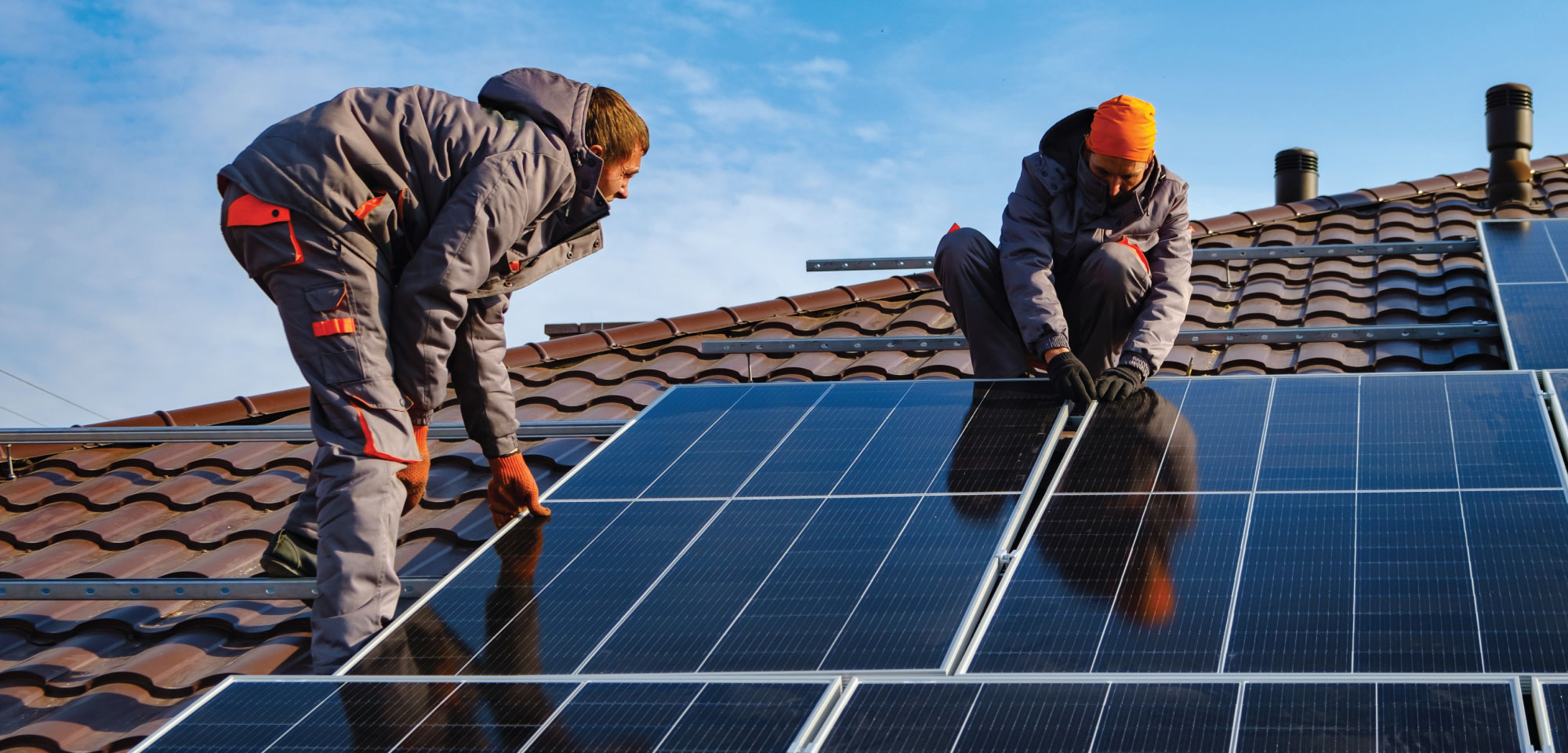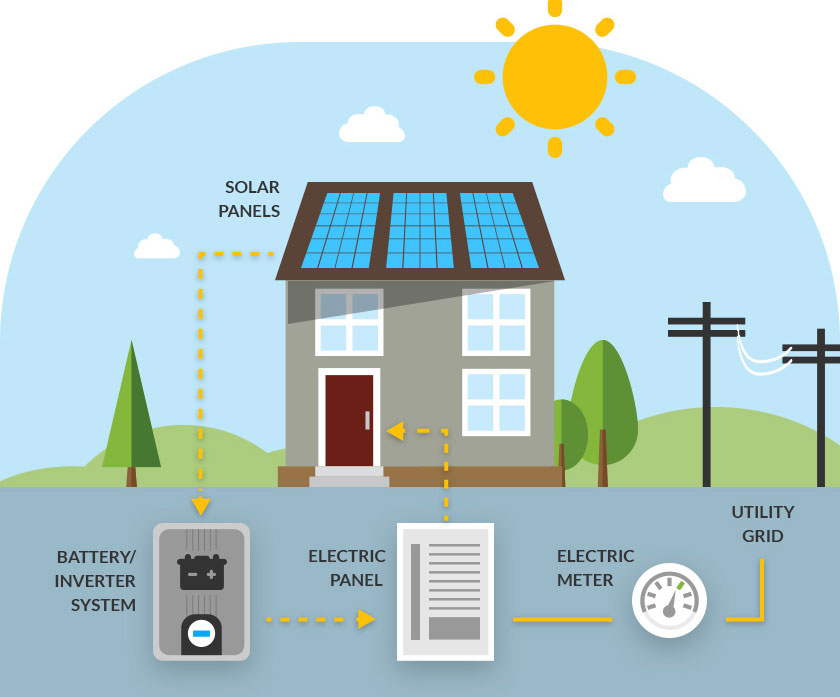Virginia Solar Providers: Lumina Solar Focuses On Providing Advanced Photovoltaic Solutions For Homes And Services
History and Establishing
Have you ever questioned how a photovoltaic panel business springs from a simple trigger of inspiration into a powerhouse of renewable resource? It often begins with a vision-- one fueled by a blend of innovation, decision, and a pinch of serendipity. The journey of numerous solar companies mirrors the evolution of the technology itself: from large, ineffective panels to sleek, high-efficiency marvels harnessing the sun's bounty.
The Early Days
In the late 20th century, when solar power was still a specific niche principle, pioneers planted seeds for what would end up being a worldwide movement. Envision a little workshop filled with curious engineers, relentlessly exploring with solar batteries. Their passion was palpable, frequently driven by a desire to fight climate change and minimize dependence on fossil fuels.
One such anecdote has to do with a founder who, motivated by an outdoor camping journey, recognized that even in remote locations, check here the sun could power essential devices. This simple observation sparked a business's objective to equalize access to clean energy.
Establishing Concepts

- Innovation: Constantly pressing the borders of solar technology to enhance effectiveness and resilience.
- Sustainability: Dedicating to environment-friendly manufacturing and lowering carbon footprints.
- Availability: Making renewable energy options cost effective and practical for daily users.
Milestones in Development
| Year | Secret Occasion |
|---|---|
| 1985 | Business established in a little garage, focusing on research study and advancement. |
| 1995 | Very first commercial solar panel product launched, getting local attention. |
| 2005 | Expanded to global markets, accepting global renewable resource goals. |
| 2015 | Presented cutting-edge solar panel innovation with enhanced energy conversion. |
Isn't it fascinating how these incremental actions, typically ignored, shape the energy landscape today? The solar panel company story is not almost technology; it's about a ruthless mission for a brighter, cleaner future.

Developments in Photovoltaic Panel Technologies
Ever observed how some solar panels shine brighter and last longer? It's not magic; it's the science of photovoltaic performance. Modern solar panel business invest greatly in innovations like bifacial cells, which capture sunlight from both sides, increasing energy harvest without expanding roofing system area. Have you ever wondered why some panels carry out much better on cloudy days? That's due to advances in thin-film solar innovation, which thrives under diffused light conditions.
Item Variations Tailored to Special Requirements
One size never ever fits all. Solar panel providers now use:
- Monocrystalline panels for optimum efficiency and sleek aesthetic appeals, suitable for space-constrained roofs.
- Polycrystalline panels, which provide an affordable option without sacrificing excessive output.
- Building-integrated photovoltaics (BIPV), merging solar tech perfectly into architectural aspects like windows and facades.
Choosing the best item isn't almost in advance expense; it has to do with matching your environment, energy goals, and long-lasting savings. For instance, homes shaded by trees need panels that master low-light circumstances, something lots of overlook until energy bills climb up all of a sudden.
Technical Tips for Optimum Choice
- Evaluate the temperature level coefficient-- lower values indicate panels lose less efficiency on hot days.
- Try to find panels with boosted anti-reflective coatings to make the most of light absorption.
- Consider the panel's warranty not just for flaws, but for guaranteed power output over decades.
- Don't ignore the importance of the inverter technology matched with the panels; it can make or break your system's efficiency.
Beyond Panels: Emerging Trends
Picture solar panels that adjust their angle immediately to chase the sun-- tracking systems are ending up being more accessible, increasing yield significantly. Or solar tiles that mix undetectably into your roofline, changing your home into a silent, self-dependent power generator. These innovations are reshaping what a solar panel business offers-- not simply items, but incorporated energy options.
Market Presence and Global Operations
Ever question why some solar panel companies appear to sprout up in every corner of the globe while others hardly make a ripple? The difference lies not just in innovation but in mastering the art of browsing diverse markets. Expanding globally is like planting seeds in various environments-- you must comprehend each environment's unique conditions to prosper.
Take, for example, the complex dance of logistics and supply chain management. Shipping panels halfway across the world isn't practically range; it has to do with timing, customizeds, tariffs, and adapting to regional need changes. A business with robust global operations anticipates these variables, guaranteeing panels show up on schedule without pumping up expenses. This foresight is no little task and often separates market leaders from followers.
Key Strategies for Expanding Market Presence
- Localized manufacturing: Developing production hubs near target markets decreases shipping delays and import complexities.
- Strategic partnerships: Working together with local companies speeds up market penetration and builds trust.
- Adaptive item design: Tailoring solar panel tech to weather, sun strength, and facilities subtleties boosts performance and approval.
What about the human element? Photovoltaic panel business running globally must reconcile cultural distinctions and regulatory subtleties without losing sight of their core mission. What works in a sun-drenched desert might falter in a humid coastal region. In some cases, the most innovative service is simply listening-- soaking up regional insights to refine innovation and method.
Experts frequently recommend a phased rollout instead of a shotgun expansion. Why run the risk of overextension when measured growth develops sustainable momentum? Scaling sensibly implies balancing ambition with operational strength - Solar Companies in Virginia. In the race for sustainable energy supremacy, persistence can be as important as speed.
Ecological Effect and Sustainability Practices
When photovoltaic panels initially emerged, many assumed they brought no ecological luggage. The truth is more nuanced. The production of solar batteries involves rare earth metals and energy-intensive processes, which can leave a large carbon footprint before the panels even reach rooftops. Yet, the true ecological expense depends greatly on the sustainability practices employed by the photovoltaic panel company throughout the lifecycle of their items.
How often do we pause to consider what happens to solar panels at the end of their helpful life? Unlike batteries or electronics, photovoltaic panels can last 25-30 years, however disposal and recycling paths stay underdeveloped in numerous regions. A company committed to decreasing environmental damage will have a robust prepare for recycling photovoltaic products, restoring important silicon, glass, and metals to prevent land fill build-up.
Secret Sustainability Strategies
- Using low-impact manufacturing methods that minimize water and energy intake.
- Implementing closed-loop systems to recycle production waste back into new panels.
- Taking part in transparent supply chain audits to make sure ethical sourcing of raw materials.
- Designing panels for simpler disassembly to aid future recycling efforts.
It's worth keeping in mind that some solar business have originated ingenious approaches, such as incorporating naturally degradable parts or using less poisonous chemicals throughout fabrication. This not just minimizes ecological pressure however also sets a precedent for the market. The question remains: can the solar industry really pivot towards a circular economy model without compromising effectiveness or price?
Expert Tips for Examining Sustainability
- Ask about the business's dedication to carbon-neutral production and whether they offset emissions.
- Investigate if they partner with accredited recycling centers dedicated to solar panel waste.
- Look for openness reports detailing environmental effects and sustainability goals.
- Think about the durability and service warranty of panels as an indirect step of resource performance.
In the end, opting for solar power needs to indicate more than just slashing electrical power costs; it has to do with nurturing a future where energy is collected properly and waste is thoughtfully handled. Photovoltaic panel business that embrace this viewpoint not only illuminate homes however likewise cast a brighter light on sustainable development.